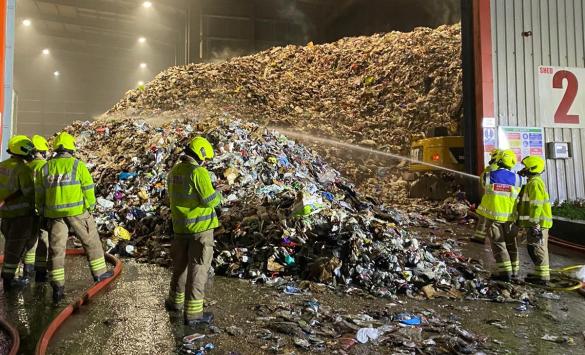In Scotland, the country’s circular economy minister, Lorna Slater, said there was a risk of under-capacity for residual waste treatment once a ban on sending biodegradable waste to landfill in Scotland comes into place in 2025. However, she suggested this would only be a short-term issue.
Ms Slater was criticised for not ruling out exports to landfill sites in England when asked what could happen by the Liberal Democrat MSP Liam McCarthur.
Ms Slater said a recent independent review of the role of incineration found that “there may be a temporary under-capacity of residual waste treatment in Scotland in 2025″.
However, she added: “There is a risk of long-term overcapacity beginning from 2026 or 2027, if all or most of the incineration capacity in the pipeline is built.”
“We are working closely with local authorities to support those that do not currently have solutions to the forthcoming ban on landfilling biodegradable municipal waste in 2025,” Ms Slater said.
“The support includes facilitating collaborative procurement and providing technical, procurement and legal support for local authorities.”
Landfill
Elsewhere, Joseph Doherty, chief executive of Re-Gen Waste, warned that there was a possibility of recycling rates falling further in the country, with landfill rates already rising.
Examining the statistics published by the Northern Irish Government for January to March 2022, Mr Doherty said he was “surprised” to see that 25.2% of household waste was still being set to landfill, up 0.2% from the previous year, while recycling fell 1.1%.

While suggesting Northern Ireland’s recycling rates could fall further as a result of the cost-of-living crisis, Mr Doherty said the news “wasn’t all bleak” as the amount of waste sent to be used as refuse derived fuel has risen 2% in the last year. He also suggested that there was the potential for the amount of waste that Northern Ireland sends to landfill to fall.
He said: “A new Sullatober household recycling centre in Mid and East Antrim council only came into operation in June so has had no influence on DAERA’s latest statistics, but it will divert 1,000 tonnes of waste from landfill annually.
“This is great news for the 40,000 householders of Carrickfergus and the population of Mid and East Antrim, receiving funding of £995,000 for the centre from the Department of Agriculture.”
Mr Doherty added that household waste accounted for 87.3% of the overall tonnage between January and March 2022, so the amount of commercial waste generated was in the region of 33,371 tonnes. “The focus might need to be on splitting that commercial waste into recyclable and non-recyclable materials,” Mr Doherty said.










Subscribe for free